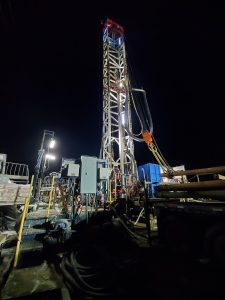Are Executive Orders N-7-22 and N-3-23 delaying your well permits?
Governor Newsom recently issued two Executive Orders to increase drought resiliency in California: Executive Orders N-7-22 and N-3-23, which may be delaying drillers’ well permits. Many drillers have received requests from permitting agencies to provide a letter from a qualified professional stating “…that extraction of groundwater from the proposed well is (1) not likely to interfere with the production and functioning of nearby wells, and (2) not likely to cause subsidence that would adversely impact or damage nearby infrastructure.” Many permitting agencies are requiring that the determination regarding potential well interference and subsidence be provided with the application to construct a new well.
DBS&A understands these Executive Orders, and the conditions for exemptions, and has California Certified Hydrogeologists, Professional Geologists, and Professional Engineers throughout California to assist drillers with letters of compliance.
Read more in this white paper published by the Groundwater Resources Association of California.
Contact
Tony Morgan, PG, CHG
Principal Hydrogeologist
(805) 683-2409
tmorgan@geo-logic.com
The Executive Orders can be read in full on the state’s website: https://www.gov.ca.gov/category/executive-orders/
In Executive Order N-3-23, Paragraph 9 of Executive Order N-7-22 is withdrawn and replaced with the following text:
To protect health, safety, and the environment during this drought emergency, a county, city, or other public agency shall not:
a. Approve a permit for a new groundwater well or for alteration of an existing well in a basin subject to the Sustainable Groundwater Management Act and classified as medium- or high-priority without first obtaining written verification from a Groundwater Sustainability Agency managing the basin or area
of the basin where the well is proposed to be located that groundwater extraction by the proposed well would not be inconsistent with any sustainable groundwater management program established in any applicable Groundwater Sustainability Plan adopted by that Groundwater Sustainability Agency and would not decrease the likelihood of achieving a sustainability goal for the basin covered by such a plan; or
b. Issue a permit for a new groundwater well or for alteration of an existing well without first determining that extraction of groundwater from the proposed well is (1) not likely to interfere
with the production and functioning of existing nearby wells, and (2) not likely to cause subsidence that would adversely impact or damage nearby infrastructure.

